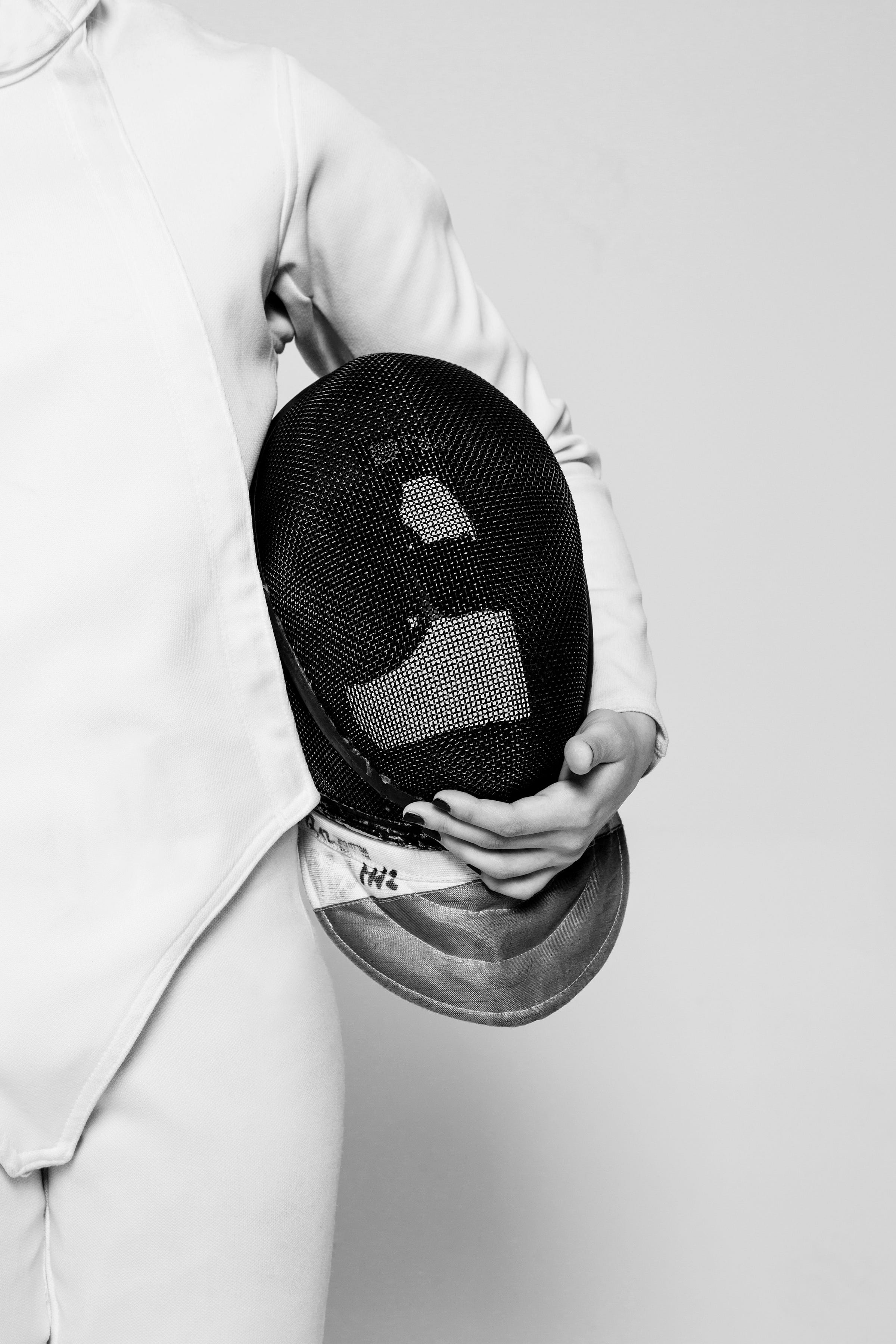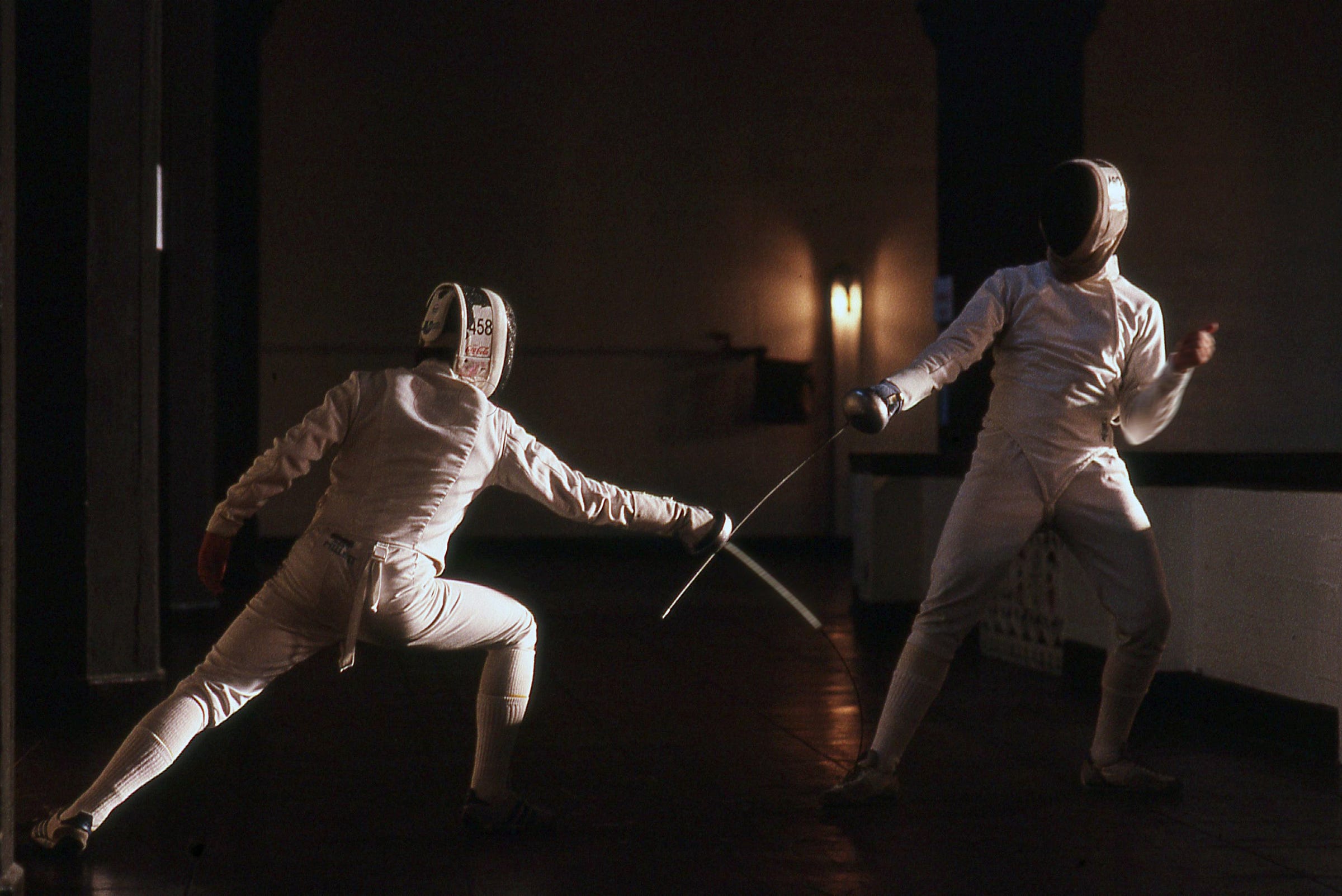The real battle within a fencer and student
Dual Career: the benefits, challenges and struggles
A dual career at an early age can be challenging, enriching and positive in many ways. The term dual career (DC) in student-athletes, refers to young people who are studying and developing a professional athletic career at the same time. In the last years, many researchers have been working hard to analyse the topic and provide better support plans to student-athletes.

The benefits
The number of athletes engaging in a DC has grown substantially during the past decade. Elite athletes and their environments start to acknowledge that developing a DC is not a barrier towards excellence, but that education and sport can greatly complement each other (Defruyt et al., 2021). A few years ago, athletes used to start a DC to have financial safety at the end of their athletic careers. Nowadays, other reasons are considered such as, identity development, construction of transferable competencies and better social networks (Defruyt et al., 2021).
The potential value and benefits of combining sport and studies are short and long-term. The skills learned in one area may be transferable and valued in others. Intellectual stimulation may also help to maintain interest and commitment in training when athletes face up and downs. The ones who undertake a DC are often more prepared for athletic retirement and experience a more successful transition out of sport (Storm et al., 2021).

The Challenges
The pursuit of a DC usually originates during adolescence, as this phase overlaps with formative stages of the individual’s physical, psychological, social, financial development and the construction of the sense of personal identity (Cartigny et al., 2021). The benefits of a DC pathway largely depend on an interplay of processes and variables. Balancing between two different commitments, is one of the biggest challenges for DC athletes. Issues of burnout, psychological distress, and injuries associated with increasing demands in sport and education have been reported. Researchers have stressed the need of applying a holistic perspective to understand DC athletes from a more human point of view. With the aim of reducing pressure and allowing them to train and study in more efficient ways (López-Flores et al., 2021).
Another big challenge is the general lack of awareness about how mental health can be affected during DC (Kollman, 2021). While students with strong athletic identity are generally considered to hold the best chance of athletic success, the exclusive commitment to sport, or identity foreclosure, has been associated with poor adjustment to life after sport, mental health issues, and athletic burnout (Schinke et al., 2018). Given the number of stressors they face, many may push themselves to the point of burnout. One of the main results of it is long-term psychological stress (Kollman, 2021). Researchers argued that DC athletes can balance their sporting and non-sporting careers if they develop relevant competencies such as career planning, social intelligence adaptability and emotional awareness, along with structured supporting systems (López-Flores et al., 2021).

DC in the UK and USA
Even though DC still involves a lot of challenges in many countries, there are some that are more advanced than others such as the UK and the USA. The National Collegiate of Athletic Association (NCAA) is a member-led organization dedicated to lifelong success and well-being of college athletes in the USA. NCAA schools award close to $3.5 billion in athletics scholarships every year. The USA has nearly 500,000 college athletes that compete for about 1,100 member schools and 50 states.
In the UK, a growing number of talented athletes are choosing to follow a university dual career pathway. Several British universities are now high-performance centres where they can receive a range of services (e.g. lifestyle support) to encourage their holistic development. The opportunity to combine education with sport may be higher in the UK than other European countries due to the large number of universities that now offer athlete support programmes (Vickers, 2021). A recent study found 95 universities that offer sport scholarship programmes (Vickers, 2018).

Lindsay, a real DC testimony
To get a better insight, one female student-athlete was interviewed. She studied in the UK and the USA. We will use a random name to protect her identity. Lindsay is a British American fencer who has been competing for the British national team since she was 18 years old. She participated on her first competition with very little experience. With hard work and dedication she managed to take part in several local, national, and international competitions. She almost got into the Tokyo Olympics. She is currently studying a PhD at Oxford University, researching batteries and she is still competing in fencing.
Lindsay started practicing different sports at a young age, but one day after watching The Parent Trap she decided she wanted to become a fencer. From that day, her fencing career began. At the beginning, she did not know how far it would take her, she did not have clear goals, she just knew that she liked it. While she was at school, she said it was not hard to train and study because she was a responsible student. As a result, her teachers always liked her and offered academic support so that she could pursue her athletic career.
She clearly remembers a teacher that was always there helping her out. ‘You know, when you have those teachers who make a difference in your life, she was one of those for me,’ said Lindsay. They are still friends. Although British fencing does not have a ton of money to provide support, she always had great support from her parents and school. ‘I’m very lucky to have amazing parents who supported me and were willing to sacrifice a lot, so I could do my sport,’ said Lindsay.
After graduating, she moved to the USA to study her bachelor’s degree and the transition was not easy. She decided to go there because the country has a strong sports culture and they do have a really good support system. However, she thought that being half American would make it easy, but it wasn’t. ‘I didn’t feel super homesick, but I think I just sort of suppressed it and I definitely felt kind of like a fish out of the water. I didn’t really have any British friends when I was there. And so, felt very disconnected from the UK’, said Lindsay. It was hard. She never wanted to sacrifice academics for sport, but she also did not want to do the opposite, which was kind of a problem. She refused to let one get hurt by the other and ended up not doing as well as she would have liked to.

The beginning of a burnout
During her first-year school got more affected than sports. She always wanted to do a PhD and her grades were not great, so she kind of gave up on that dream. After that, year things became tougher. She entered a buckle where she was using fencing as an escape. ‘Sports help you, but it’s hard to see the line where it stops being beneficial. So, I definitely overtrained’, said Lindsay. Her mental health started getting affected. Her third year was the worst. ‘I remember one training, I was feeling really bad. It was a cardio session, I was running. I felt like I wasn’t running fast enough, I wasn’t trying hard enough. So, I just started swearing at myself under my breath and calling myself all these horrible things and being like, if you don’t run faster, you don’t deserve anything,’ said Lindsay.
Negative motivation was something that she used all the way through, but it was not functional. It got to a breaking point, where she was facing depression and anxiety. She went to see a sports psychologist and got told that her issues were complicated so she had to see a psychiatrist. They recommended to put her on medication, but she did not want to. So, she was doing 10 hours of therapy a week, on top of school and fencing.

The battle continues
She worked hard to find a balance in her life. After graduating, she moved back to the UK and took a year off university where she was only fencing. She thought that would help, but it made her more stressed because now all the pressure was on one area. ‘So, actually that year that I was just fencing, I had my worst results ever,’ said Lindsay. Afterwards, she started her PhD at Oxford University. She feels the balance is better now, but she has not fully found it.
Lindsay’s story is just one example of what many athletes go through during their DC. Mental health is one of the biggest issues and many do not talk about it. ‘When I was going through my roughest moments, there were a handful of people who knew, even my parents didn’t now how bad it was. I didn’t really talk to a lot of people about it. I’m trying to learn to open up now’, said Lindsay. Creating stronger support nets, educating people about DC and becoming more open minded can help student-athletes reduce the pressure they face day by day. It is very important to see them as humans, in a holistic way. To help them find more efficient ways to study and train with less pressure. And, to normalize speaking up about mental health issues.



